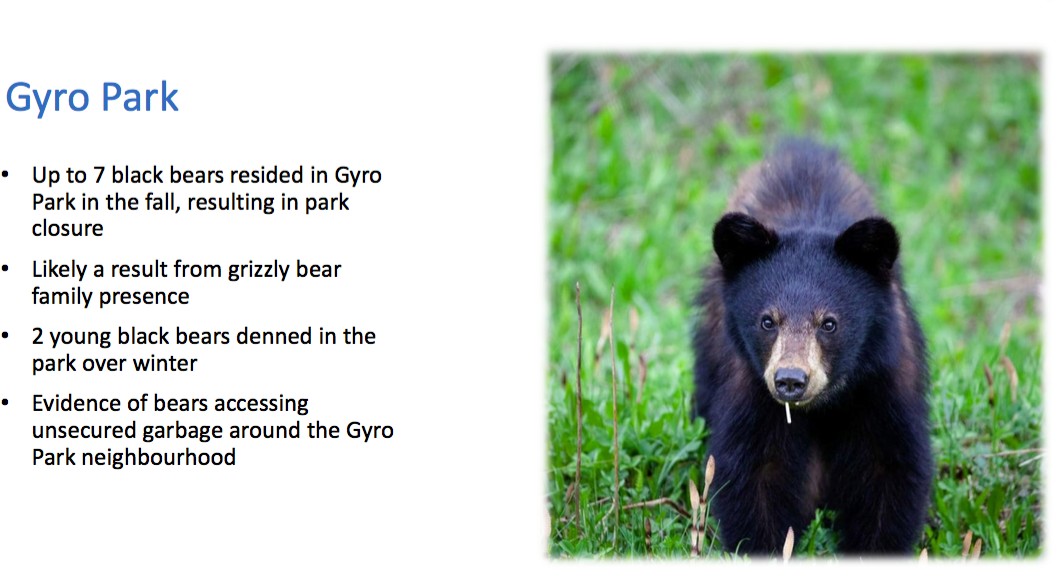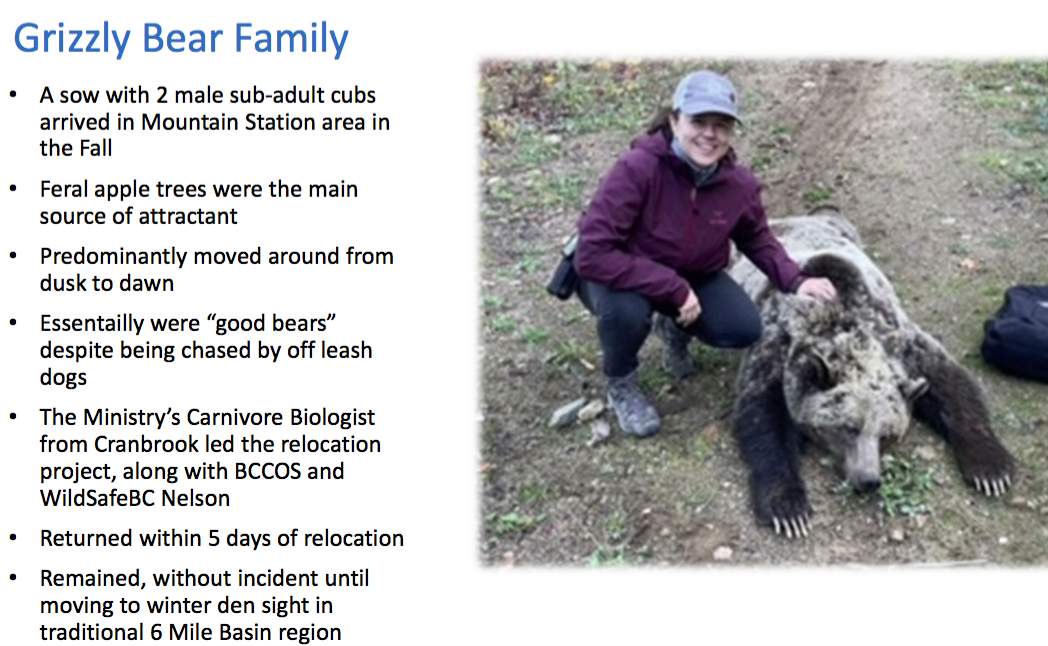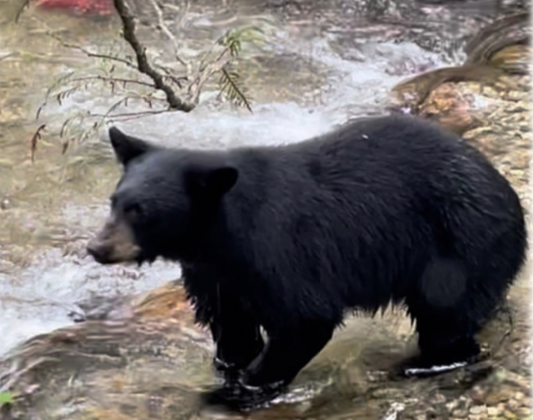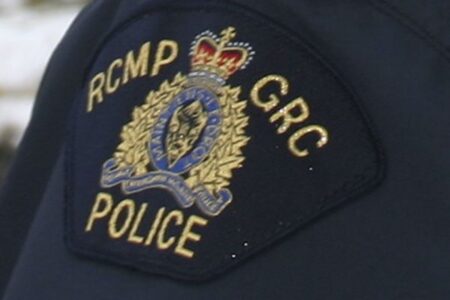Bear season ‘unprecedented’ and likely to continue if measures not taken: WildsafeBC coordinator
With no black bears destroyed in 2023 and a laundry list of bear problems in downtown Nelson the same year, the program that manages human-wildlife conflict in the region was questioned on the issue.
It was considered another “unprecedented season” in Nelson with no bears extinguished due to human conflict — although two animals were put down due to injury — but both Gyro Park and the Rail Trail were closed in fall due to bears living in the area.
The year also felt “really different” with the amount of bears in town and coming into the downtown area, said Coun. Jesse Woodward at the May 21 regular council meeting, and residents had to learn to co-habitat with bears.
He was the first to question WildsafeBC’s coordinator Lisa Thomson when she presented her annual report to City council — one of the program’s funding partners.
“I’m just kind of wondering where we are going? It seemed like last year was pretty exceptional all of a sudden to be living with bears, so was it? Was it an exceptional year in that sense?” Woodward asked.
“I mean, what is happening here? Is this the new reality for us, that we will be living with bears? It seems like a choice between not destroying bears and then we live with bears, and destroying bears and not living with bears, it feels kind of binary that way.”
Thomson said it was difficult to say how the bruin issue was evolving.
“If you asked someone 20 to 30 years ago, ‘did we have this many bears in town?’ then the answer was probably no. However, were we managing our garbage better back then or did we have less garbage … We never threw out food waste, so there was less garbage going out,” she told council. “There has always been an interface with bears and wildlife here …”
There had been no action on management of the garbage situation for years, Thomson explained.
“With all of the factors … like people not having bear-proof containers for their garbage and not treating their attractants appropriately, I feel like every year is going to be an unprecedented season for bears until we lock down what is attracting them,” she added.
Those measures are vital to reducing the number of bears wandering into downtown Nelson, as well as conflicts with other animals, said Thomson.
“And, although the bears may still come into town, they will not gain food rewards so they will move on,” she pointed out.

What is human-wildlife conflict
Human habituated
When wildlife become less fearful of humans and urban areas. This is a learned response and behaviour.
Food conditioning
Wildlife become reliant on human-generated food sources. This is a learned behaviour, that can be taught to offspring.
Together, this increases the risk of human-wildlife conflict, which can lead to safety concerns for both the community and wild animals.
Source: WildsafeBC

Nelson coverage
The operation of the Nelson WildSafeBC includes the City of Nelson and the Regional District of Central Kootenay’s Areas E and F, from Ainsworth, along the West Arm of Kootenay Lake incorporating the North Shore, Harrop-Proctor, down to Bonnington and Beasley
WildsafeBC is a program created and delivered by the BC Conservation Foundation with the goal of reducing human-wildlife conflict through collaboration, innovation and community solutions.
WildsafeBC helps communities manage interactions with bears, and also deer, cougars, coyotes, skunks, and rats.
Source: WildsafeBC


























Comments